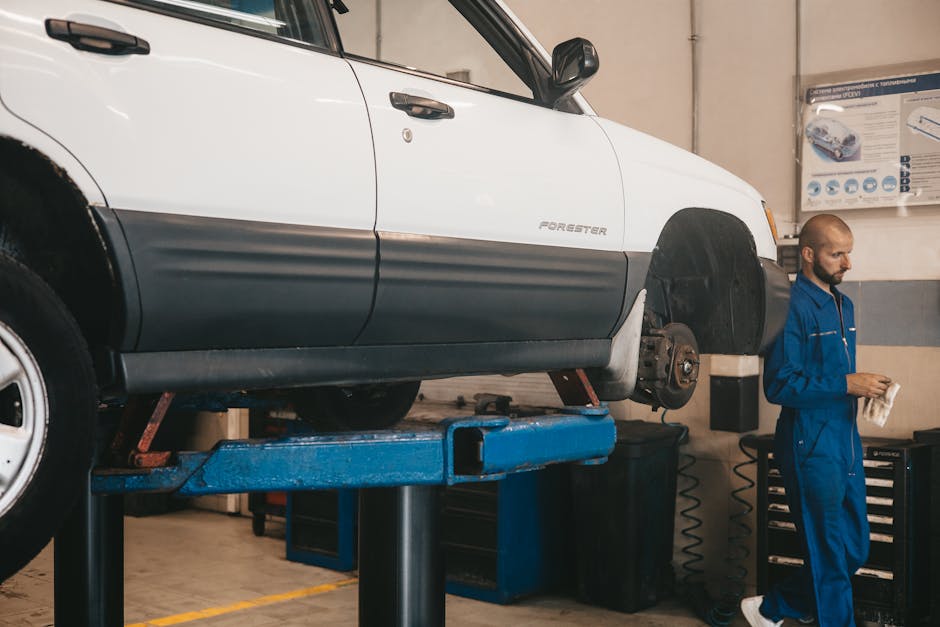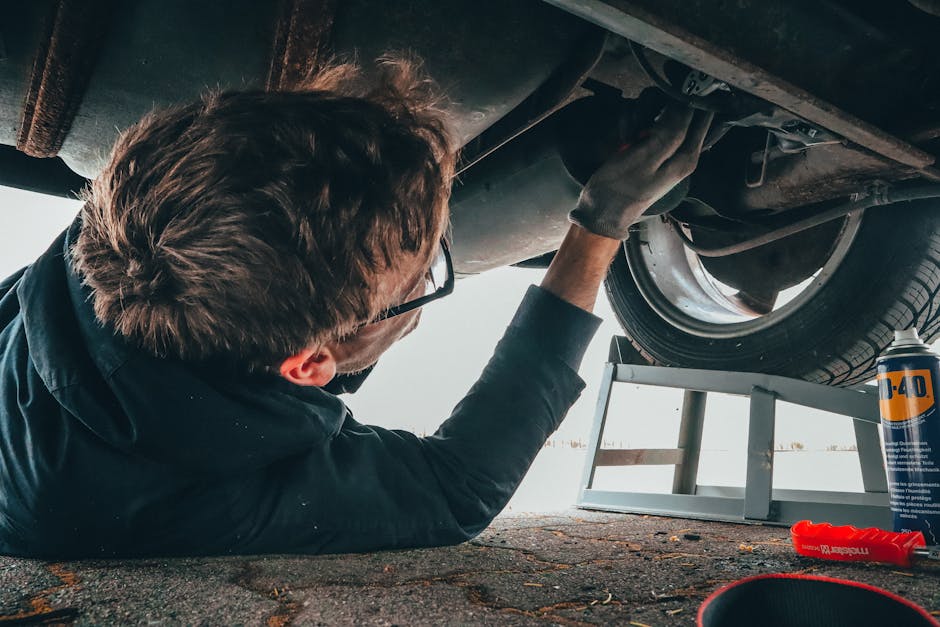 Swipe for more categories
Swipe for more categories 
Vehicle Care Protection
Vehicle Care Protection
Vehicle care and protection is no idle responsibility. For many individuals and businesses alike, vehicles are vital tools essential for day-to-day operation.
From your daily commuter car sweeping through the bustling city, to large delivery trucks transporting supplies across the state, each vehicle represents investment and utility. In that regard, they require not only regular upkeep, but comprehensive protection too.
Understanding the significance of vehicle maintenance can save you excessive costs and unnecessary inconveniences in the long run. In this blog, we delve into the world of vehicle care and protection. We hope to guide you through practical and effective strategies that ensure your vehicle remains in peak working condition, adds to its lifespan, and fosters safety on the roads. Saving yourself from unwanted headaches begins with one essential step: Prioritising vehicle care and protection.
The Basics of Vehicle Maintenance: What Every Car Owner Should Know…

Understanding the basics of vehicle maintenance is essential for every car owner to ensure their vehicle remains in top-notch condition.
A routine check of your vehicle’s fluid levels is crucial. Regularly top up the engine oil, brake fluid, transmission fluid, and coolant to prevent any potential damage.
Next, tire pressure. Maintaining the optimal tire pressure improves fuel efficiency and extends the tire life.
Remember, your braking system keeps you safe on the road. Have your brakes checked if you notice any unusual noise or feel.
Lastly, consider the timing belts. They’re often overlooked, but a broken timing belt could lead to a costly engine repair.
Keeping a regular maintenance schedule will not only prevent breakdowns but also save you money in the long run. No one wants to be stranded because of something that could have been avoided with routine care.
Regular Vehicle Inspection: Spotting Issues Before They Worsen…

Regular vehicle inspection is not only a preventive measure but also an insightful procedure to keep your vehicle in its optimal condition.
Many vehicle owners ignore this precious habit and end up dealing with the consequences of minor problems escalating into major issues.
Having your vehicle checked periodically can help spot underlying problems before they get worse, saving you both time and money in repairs.
Many parts of a vehicle may deteriorate over time, including the brake system, tyres, lights, and engine.
Moreover, in some cases, there could be issues developing internally that aren’t visible to the naked eye, but a proper inspection can identify these.
Ultimately, by regular inspection, you not only maintain your vehicle in prime condition but also ensure personal safety for you and others on the road.
Professional Vehicle Maintenance: Why it’s Crucial…

Photo by Artem Podrez on Pexels
In a professional setting, managing a fleet of company vehicles involves more than just logistics and coordination. It also necessitates a focus on professional vehicle maintenance.
Why is this so crucial?
Firstly, it enhances the vehicles’ longevity. Regular, professional maintenance means servicing by trained technicians who catch and address minor issues before they escalate into costly repairs.
Moreover, there’s safety to consider. Maintaining your vehicles ensures that every drive is a safe one, reducing the risk of road accidents caused by vehicle faults. It’s an investment in the well-being of your employees too.
In essence, professional vehicle maintenance isn’t merely about cost-saving or operational efficiency. It’s about guaranteeing everyone’s safety and maintaining your company’s reputation for quality and professionalism. Consider it the ultimate protection for your prized business assets.
Proper Vehicle Cleaning: The Dos and Don’ts for Keeping Your Vehicle Spotless…

Photo by Maksim Goncharenok on Pexels
Maintaining the condition of your vehicle is crucial for its durability and longevity. Regular cleaning not only maintains its aesthetic appeal but protects valuable components from potentially damaging elements.
DO: Clean regularly. Dirt and grime accumulate overtime and can erode your vehicle’s coating. Use a gentle, car-specific soap to ensure longevity.
DO: Wax your car. A proper waxing can act as a shield against scratches and harmful UV rays.
DON’T: Use household cleaners as they can strip away essential oils from your vehicle’s finish.
DON’T: Forget to clean the interiors. Accumulated dust and grime can lead to foul odour and cause wear and tear on the seats and interior trim.
Remember, your vehicle is an investment. Protecting it begins with professionally recommended cleaning habits.
Cost-effective Vehicle Maintenance: Tips on Saving Money While Keeping Your Car in Top Shape…

Photo by Pixabay on Pexels
Navigating through vehicle maintenance expenses can be daunting, often troubling your budget. However, proper vehicle maintenance doesn’t have to break the bank. There is a way to balance quality care and cost-effectiveness.
Start by conducting regular vehicle check-ups to avoid potentially costly repairs down the line. This includes regular oil changes, tire rotations, and inspecting car fluid levels.
Investing in good quality parts can save you money in the long run as they often last longer, eliminating the need for frequent replacements.
Even seemingly minor steps, like keeping your tires properly inflated can improve fuel efficiency, saving you money at the gas pump. Remember, prevention is always better (and easier on the pocket) than an expensive cure. Embrace these simple habits and you’ll not only keep your vehicle in top shape but also your finances under control.
Importance of Regular Oil Changes: Sustaining Your Car’s Performance…

Photo by Malte Luk on Pexels
Just like how our bodies require water for optimal functionality, so too, our cars thirst for oil. Regular oil changes play a pivotal role in averting wear and tear in your vehicle’s engine.
Without oil, the metal parts that facilitate the vehicle’s movement, rub against each other, causing irreversible damage. Not only that, oil also acts as a fix-all potion of sorts, helping clean the engine by collecting and trapping dirt particles.
But typically, with time and use, this oil gets dirty and loses its efficiency. Hence, the need to change it regularly. Also, note that old oil equates to reduced fuel efficiency – another reason why regular oil changes shouldn’t be ignored.
In conclusion, remember to treat your car’s engine oil as an investment than an expense. For a car that runs smoothly and efficiently, make regular oil changes your priority.
Tire Maintenance and Care: Ensuring Safe and Smooth Rides…
In maintaining your vehicle, tire upkeep is among the most crucial steps you can take.
It not only guarantees your safety but also promises smoother rides.
Firstly, regularly check your tire pressure. Too much or too little can lead to wear and tear or even sudden blowouts.
Secondly, observe your tires’ tread. Consider replacing your tires when the tread wears down beyond the suggested limit.
Rotation is another vital aspect of tire care. It helps your tires to wear evenly, thus prolonging their lifespan.
Don’t overlook the significance of regular inspections. Trained professionals can spot potential problems before they escalate.
When it comes to tire maintenance, remember that a small step can prevent a big accident. Always prioritize safety and the quality performance of your ride.
Protecting Your Vehicle’s Interior: Tips for Prolonging the Life of Your Car’s Inside…

Photo by Ryan West on Pexels
Photo by Tim Samuel on Pexels
Taking excellent care of your vehicle’s interior doesn’t only mean maintaining its appearance, but it’s also about preserving its functionality and increasing your car’s lifespan.
Start with basic cleaning. Regularly vacuum your car interior to prevent grime from embedding into carpets and upholstery. Wipe down the dashboard using a microfiber cloth to keep it dust-free.
Invest in high-quality car seat covers. They safeguard your seating from spills, scratches, and UV damage.
Window tinting can shield your interiors from harmful sun exposure, significantly reducing wear and tear on your upholstery.
Air fresheners are essential too. Though they don’t physically protect, they maintain a pleasant environment, crucial for an enjoyable ride.
Lastly, avoid eating in your car. It reduces the risk of spills or stains that might cause damage to your interiors. Remember, regular maintenance goes a long way in prolonging your vehicle’s inside.


